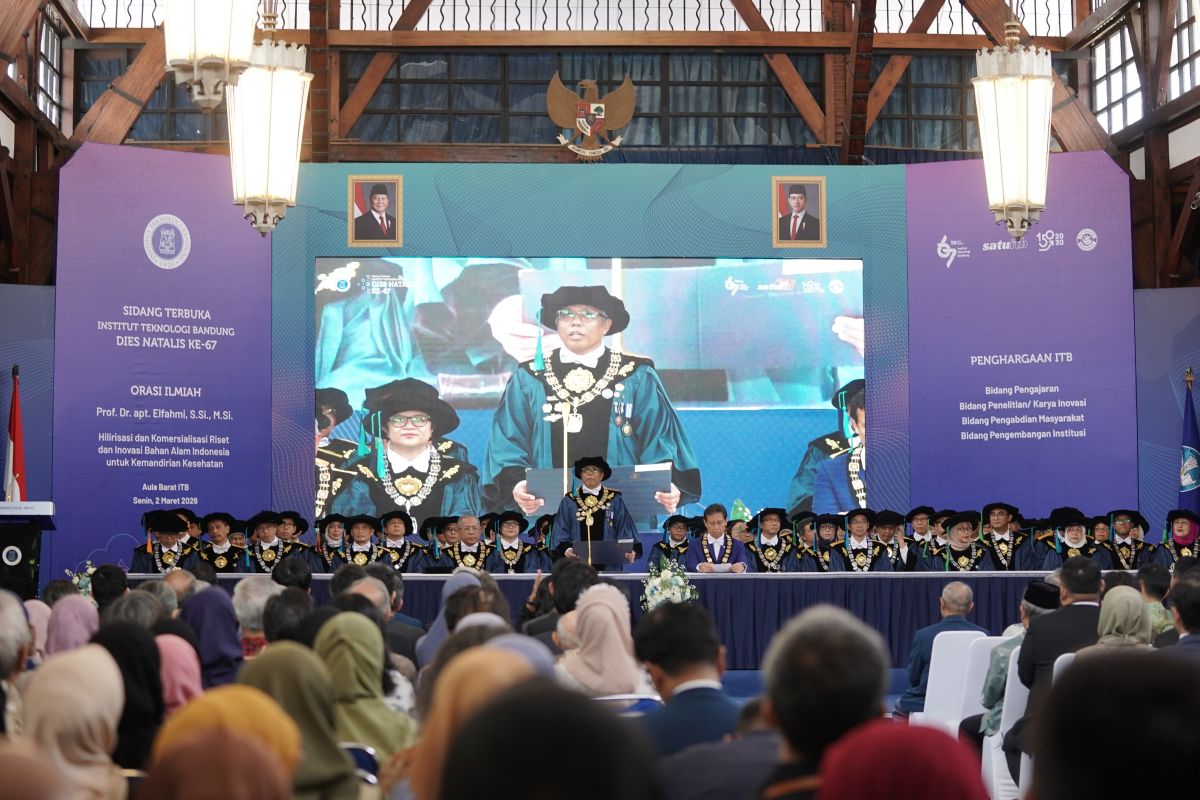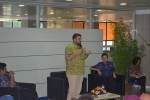In Support of PPE Demand, ITB Produces Face Shields with 3D Printer Technology
By Adi Permana
Editor Adi Permana
 *Face shield prototype made by Ir. Adi Indrayatno, M.Sc, Ph.D. (Picture: private document)
*Face shield prototype made by Ir. Adi Indrayatno, M.Sc, Ph.D. (Picture: private document)
BANDUNG, itb.ac.id – Since COVID-19 has been declared as a pandemic, medical workers have been faced with the duty of handling the amount of positive patients, person under surveillance (OD), and patient under surveillance (PDP). In taking care of these patients, medical workers are required to protect themselves to avoid close contacts and droplets from interacting with patients.
Therefore, the use of Personal Protective Equipment (PPE) is one of the essential actions in preventing and controlling potential exposure to the virus. This also reinforced with the rising phenomenon of dying medical workers due to PPE shortages when handling COVID-19 patients.
PPE itself is a device designed as a barrier against the penetration of substances, solid particles, liquid, or air to protect the wearer from injury or spread of infections/diseases. Based on the document of the Technical Guidelines for Personal Protective Equipment (PPE) from the Ministry of Health of the Republic of Indonesia published on April 8, 2020, the types of PPE that are recommended to be provided in handling COVID-19 are surgical masks, N95 masks, face shields, goggles, medical gowns, aprons, gloves, headgears, and protective shoes. These products, depending on its usage, can also be categorized as disposable or non-disposable.
The drastic increase in demand for PPEs and disturbances in health-care supply chains have also caused shortage of medical supplies. One of the lecturers at School of Electrical Engineering and Informatics (STEI) ITB, Ir. Adi Indrayatno, M. Sc, Ph. D, also gave an example for this sudden increase. If the demand of PPEs per month for medical workers in Indonesia is 1,2 million units, this number would eventually add up to around 36 million units per month. Therefore, Adi has come up with the idea of producing face shields which will be directly distributed to the needing medical workers in hospitals, public health centers, or other medical facilities.
Starting from 2 available 3D printers, Adi and his team began making face shields by modifying open source designs published by PRUSA. With a diameter of 17.5 cm for the head and equipped with rubber headband, the face shield is made with 0.4 mm mica sheets that are cut and punched. However, due to the production capacity of the 3D printers, an increase in the amount of 3D printers is needed. Until now, there are 6 3D printers that can produce 60-80 products per day, with a total of more than 1600 face shields that have been distributed.
With the increasing number of COVID-19 patients and areas exposed to the COVID-19 pandemic, the demand for face shields continue to increase, reaching a record high of 9.419 units. Therefore, Adi also made another innovation by making plastic molds for face shield production. “With this mold, face shield production can be increased to 500 – 1000 units per day”, Adi said when recently contacted by a reporter from ITB Public Relations Office. He also said that preparations for the plastic molds had been made in the last 3 weeks and is now ready to be used.
Production and distribution of face shields are also made possible through funding from LPPM ITB and with the help of several parties that are involved, which are staffs, researchers, and ITB alumni. “Eitituers”, a name given for ITB class of 1982 alumni, is one of the participants for this movement through “Yayasan Alumni ITB 82”. Being deeply involved with the movement, they have done numerous fundraising activities constantly and given help for the distribution of face shields. Aside from these actions, medical facilities that need PPE can also submit a request through their website, www.eititupeduli.com.
Amid this pandemic, Adi and his team continue to find a way for fulfilling PPE demand across Indonesia as efficient as possible. With the plastic mold that he has created, he hoped that the face shield production can be turned into mass production, which will eventually help protect medical workers from COVID-19.
Reporter: Sabrina Farah Salsabilla
Translator: Verdyllan Agusta

.jpg)

.jpg)
.jpg)
.jpg)


